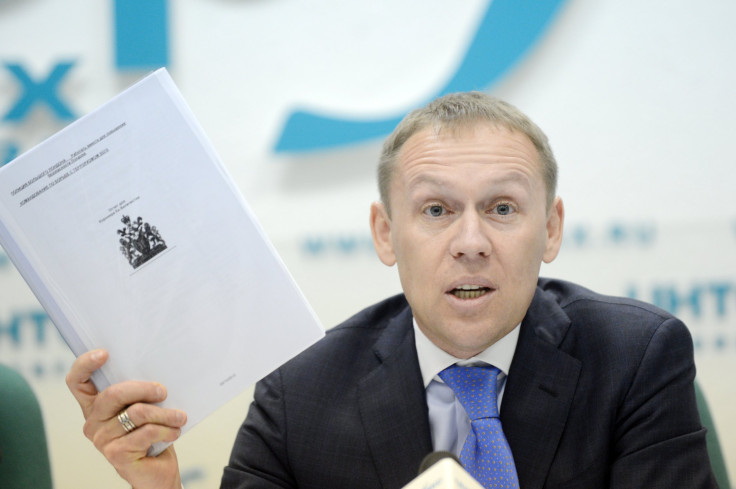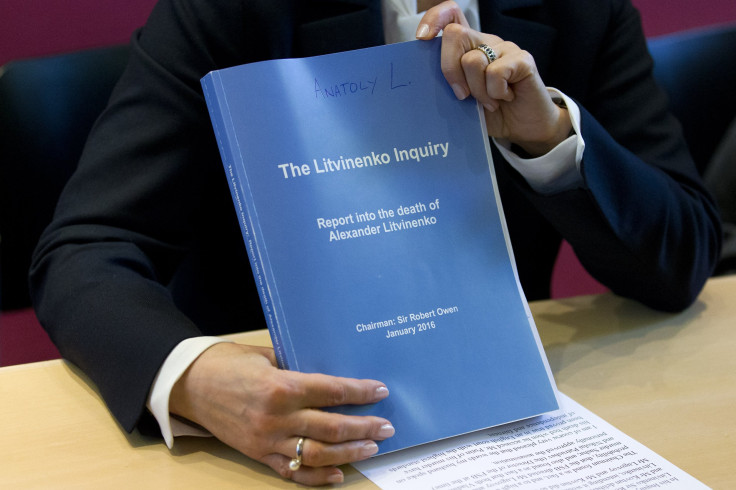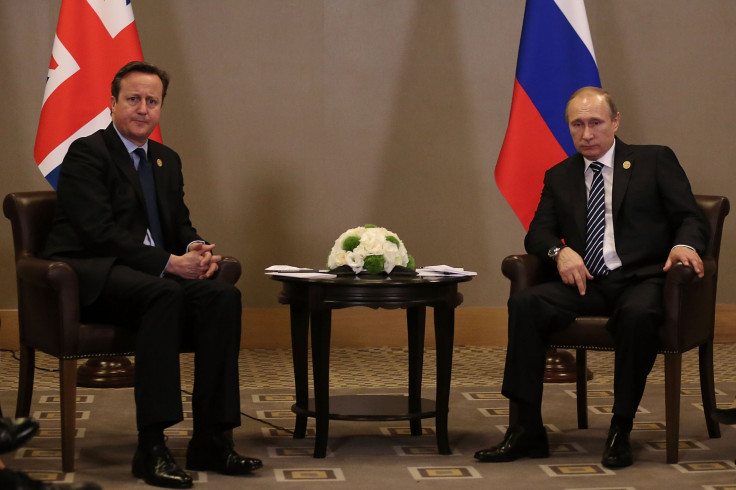Alexander Litvinenko Murder: Accused Claims MI6 Offered To Recruit Him, Suspects He Was Also Exposed To Polonium

Andrei Lugovoi, one of the men accused of poisoning former Russian KGB agent Alexander Litvinenko in 2006, said in an interview Thursday that British intelligence agency MI6 offered to recruit him before Litvinenko’s death. He said he suspected he was also exposed to polonium-210, the radioactive poison that killed Litvinenko.
The U.K. public inquiry concluded Thursday that Litvinenko was killed by Lugovoi and another KGB agent, Dmitry Kovtun, “probably” on the personal orders of Russian President Vladimir Putin. The inquiry said Litvinenko drank a cup of tea with Lugovoi and Kovtun that was laced with polonium-210, adding that the two agents could have been working on behalf of the Russian Federal Security Service (FSB).
The public inquiry was set up in July 2014 after Litvinenko’s widow, Marina Litvinenko, challenged an initial decision of U.K. Home Secretary Theresa May to not open an investigation into the case. Both Lugovoi and Kovtun denied the allegations of murdering Litvinenko in London in November 2006.
“Litvinenko died in November 2006, in March-April I was openly offered cooperation [by MI6] and in order to motivate me somehow, I was denied a visa, that was in May 2006. And after I called Litvinenko – I’ve said this multiple times – I was granted a visa all of a sudden. I have always connected these two events,” Lugovoi said during an interview to Rossiya1 network, according to Sputnik News, adding: “They [UK] always gave me visas, and did it with great pleasure before May 2006, when I was denied a visa after the British intelligence MI6 tried recruiting me.”

In another report by Sputnik News, Lugovoi was cited suspecting that he had also been exposed to polonium-210. "I can suspect that I got it [polonium exposure] together with Litvinenko. But I lived in British hotel, took British flights, met with representatives of the British establishment and only God knows who could have given it to me," Lugovoi said, according to Sputnik News.
He added that both he and Kovtun had to undergo a prolonged treatment after they returned to Russia from U.K. Lugovoi also said he was subjected to a polygraph test by British authorities, which proved he was not guilty of the murder.
"In connection to that the General Prosecutor’s Office opened a criminal investigation into the attempted murder of two Russian citizens – Lugovoy and Kovtun. We underwent medical treatment, we were seriously ill," Lugovoi said, according to Sputnik News, adding that British authorities refused to accept documents presented by the Russian investigative committee on Kovtun and his condition.
He also said he did not plan on going to court over the allegations by British officials or clear his name because “if I go into that, it means I will attach importance to what the British are doing, and they are trying to do everything so that we pay more attention to it [the U.K. inquiry], so that we react to it somehow.” He added that he does not plan to leave Russia.
The inquiry into the case was set up amid ongoing conflict in Ukraine after Russia’s annexation of Crimea, which triggered the worst standoff between Moscow and Western powers since the Cold War. The latest controversy is pitted to strain the relationship between London and Moscow further, as the Russian foreign ministry claimed the inquiry was politicized and lacked transparency.
Russian Ambassador to the U.K., Alexander Yakovenko, called the inquiry a “whitewash” and said, “This gross provocation of the British authorities cannot help hurting our bilateral relations.”

Litvinenko had fled to the U.K. in 2000 where he was granted asylum and later citizenship. He became a strong critic of the Kremlin and was also believed to have worked for the MI6 as a consultant specializing in Russian organized crime.
British authorities have issued an arrest warrant against Lugovoi and Kovtun, but Moscow has turned down U.K.’s requests to extradite the two. The inquiry’s chairman, Sir Robert Owen, admitted there was no direct link to prove that the two had committed the killing, but added there was significant evidence to prove that the scenario was close to the truth.
“Since 2006 President Putin has supported and protected Mr. Lugovoi, notwithstanding the fact that Mr. Lugovoi has been publicly accused of killing Mr. Litvinenko. During the course of the Inquiry hearings, President Putin awarded Mr. Lugovoi an honor for services to the fatherland. While it does not follow that Mr. Lugovoi must have been acting on behalf of the Russian State when he killed Mr. Litvinenko, the way in which President Putin has treated Mr. Lugovoi is certainly consistent with that hypothesis. Moreover, President Putin’s conduct towards Mr. Lugovoi suggests a level of approval for the killing of Mr. Litvinenko,” Owen said.
© Copyright IBTimes 2024. All rights reserved.












